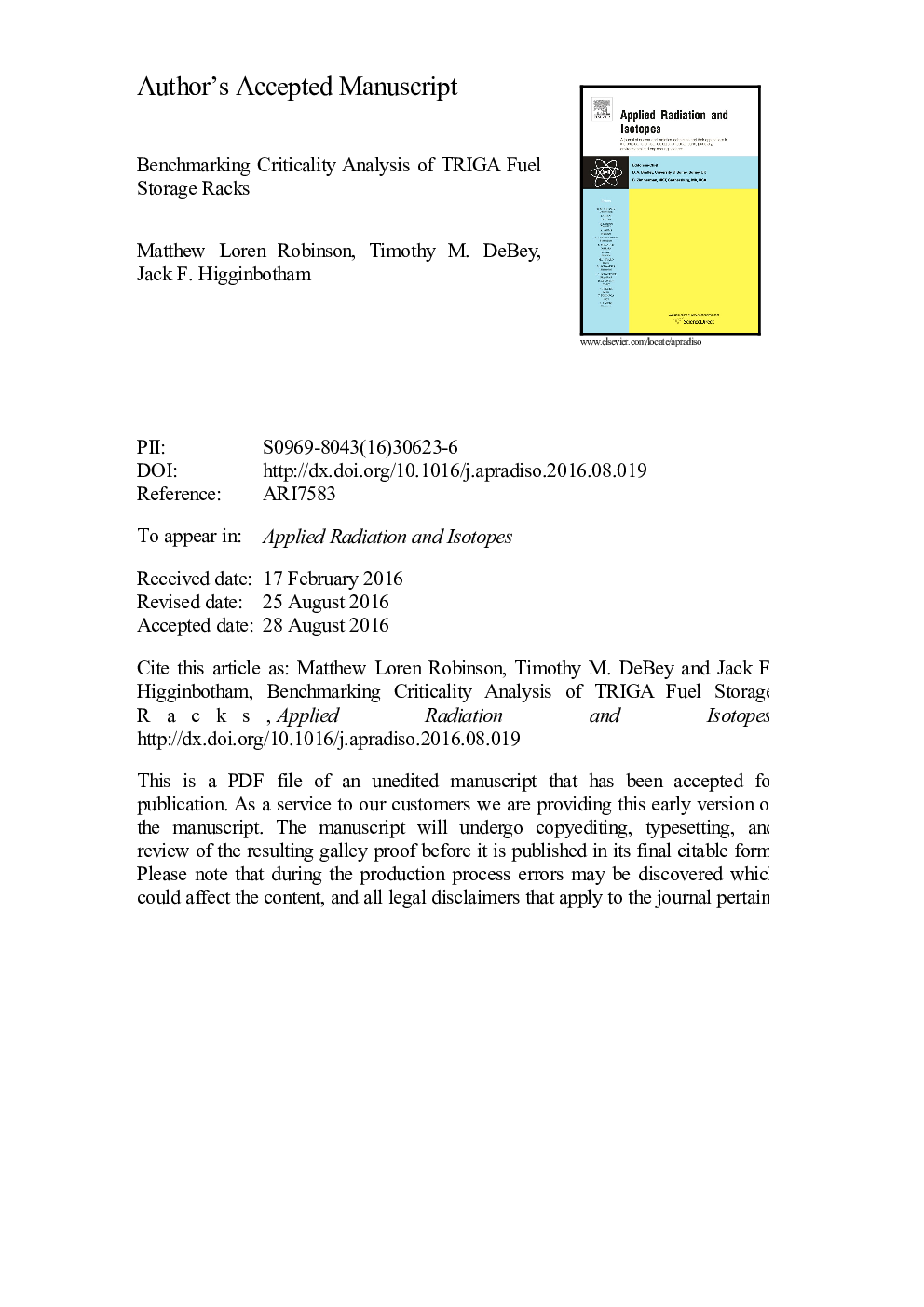| Article ID | Journal | Published Year | Pages | File Type |
|---|---|---|---|---|
| 5497722 | Applied Radiation and Isotopes | 2017 | 25 Pages |
Abstract
A criticality analysis was benchmarked to sub-criticality measurements of the hexagonal fuel storage racks at the United States Geological Survey TRIGA MARK I reactor in Denver. These racks, which hold up to 19 fuel elements each, are arranged at 0.61Â m (2 feet) spacings around the outer edge of the reactor. A 3-dimensional model was created of the racks using MCNP5, and the model was verified experimentally by comparison to measured subcritical multiplication data collected in an approach to critical loading of two of the racks. The validated model was then used to show that in the extreme condition where the entire circumference of the pool was lined with racks loaded with used fuel the storage array is subcritical with a k value of about 0.71; well below the regulatory limit of 0.8. A model was also constructed of the rectangular 2Ã10 fuel storage array used in many other TRIGA reactors to validate the technique against the original TRIGA licensing sub-critical analysis performed in 1966. The fuel used in this study was standard 20% enriched (LEU) aluminum or stainless steel clad TRIGA fuel.
Keywords
Related Topics
Physical Sciences and Engineering
Physics and Astronomy
Radiation
Authors
Matthew Loren Robinson, Timothy M. DeBey, Jack F. Higginbotham,
